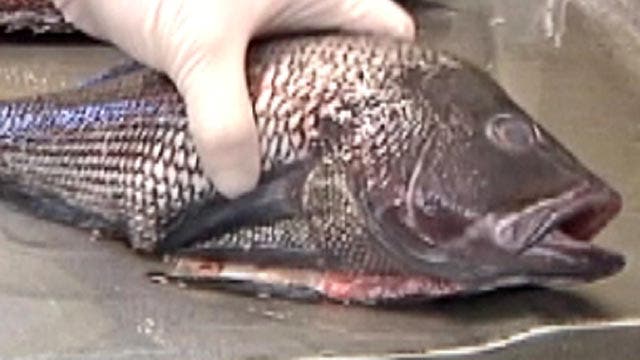Government Regulations Drowning New England Fisheries?
One well-seasoned commercial fisherman says Federal regulations are drowning New England fisheries.
He says catch shares, where fishermen are limited to a certain quota of fish per season, are to blame.
"90% of the seafood consumed in the United States comes from overseas. So we do all these rules and regulations here, we tie down all our fisherman from going fishing. And the rest of the world don't [have] the same rules that we do, and they taking our market share," says Carlos Rafael of Carlos Seafood in New Bedford, Massachusetts.
Environmental groups argue that catch shares are critical to improving the sustainability of the industry in the long-term.
"You don't just want to fish until you've run out of fish. You want to fish in a way that's sustainable. So that the populations will reproduce, the young fish will grow and become big enough to be fished,” says Dr. William Karp, director of science and research at the National Oceanic and Atmospheric Association. “And then the whole cycle can be maintained."
But others in the industry are critical, Karp admits, "we get a lot of scrutiny because people don't want to believe the news that we are bringing, and they may not be seeing the same things. Fisherman may be fishing in an area where the fish are particularly abundant. And we are trying to look over a much broader area to get a more complete understanding of the condition of the stocks."
Others say that while catch shares are a prudent practice among the fisheries, there is no evidence to suggest that they actually increase the fish population in the long term.
"The number of boats have gone down substantially because they are going out of business. The crews and number of fisherman have gone down substantially. And the catches have gone down substantially,” says Dr. Brian Rothschild, co-director of the Massachusetts Marine Fisheries Institute. “So by any measure of performance, economical or biological, it hasn't worked."
Some fishermen warn that if the government continues to implement these restrictions, the fishing industry will continue to shrink—as will the local communities.
"New Bedford without a fishing fleet, you might as well shut the doors because all the money that comes into this industry is through the fishing industry," says Rafael.




















